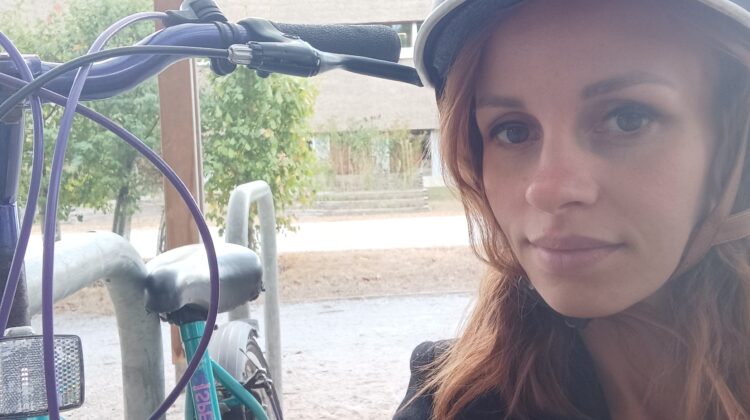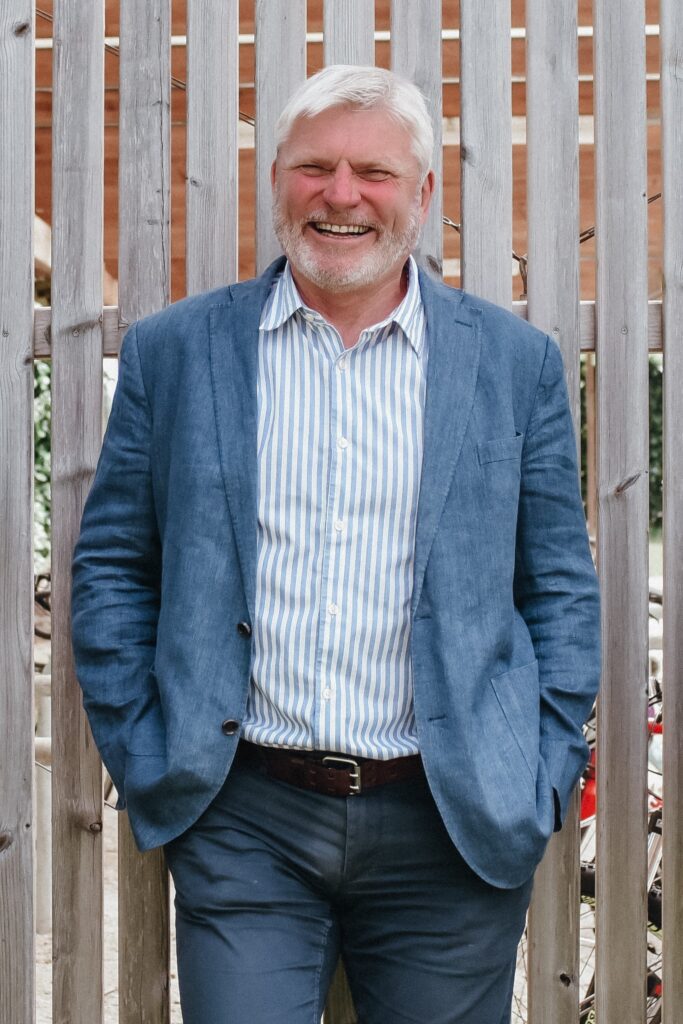
Three months almost to the day after Vladimir Putin sent his troops into Ukraine, Yuliia started working as a Marketing Assistant at Chadwicks, based in Norwich. This is her story of the journey from Ukraine to Norfolk
23.02.2022
On this day, the morning is surprisingly cold and incredibly sunny. ‘The tango of death’ in the headphones adds grotesqueness to the unpleasant premonitions of what is to come, but I, as if under a spell, cannot find the strength to switch the tune. People are slowly filling the streets, reluctantly heading to work.
I am already being called to Turkey, laughs a permanent resident of the hotel where I have been working for the third month. They say that the war has started here. Surprising that we don’t know about it yet.
I willingly laugh with him. In the evening V.P. announces the beginning of a special military operation in Donbas. A state of emergency is immediately introduced in Ukraine.
24.02.2022
If the morning is rough, the whole day goes out the window. Waking up at 5am with dad’s words, “Rockets are flying at Kyiv” is not the best start.
How long did I assure him that there would be a war? He rejected my words to the last as delusion and only now, following the stream of cars on the road, he began to see a shred of meaning in them. Although, it seemed, even after the clear sounds of air defence and photos of the first affected houses, dad could not believe in the end of the war.
But I, despite long moral training, feel in a similar state. It’ll be over soon. This madness can’t last much longer. I try to assure myself of this more than others, but it doesn’t turn out too convincingly.
A week passes. Air defence explosions are heard more and more often. Tired of the dampness and half-darkness of the bomb shelter, we decide to stay in the apartment, which has turned into a museum of despair – without electricity and water, with empty rooms and a brand-new refrigerator that died from lack of electricity. The corridor becomes the prototype of a modern studio apartment in Kyoto, where a bedroom, living room and play area fit into 10 square metres.
Clouds of smoke are rising into the sky – the shopping mall, built on the outskirts of Irpin only a few years ago, is on fire. Only recently my son celebrated a friend’s birthday there.
The correlation between the queues of potential buyers and the products on the shelves continues to gain the volume of the abyss, with an increase in the former and a significant decrease in the latter. People buy cakes, red fish and wine (the only thing left in the shops) not because they want to use them now, but because are simply afraid of staying without food at all.
To do at least something, we disassemble and sort garbage, wonder around the house in search of homeless dogs, exchange strange phrases with those we meet and instinctively squeeze heads in the shoulders when we hear another explosion.
A fragment of a rocket flies over the house and hits the neighbouring roof, burning it to the ground. The floor shakes as if during a 5D cinema session, with the only difference that this time the reality is not virtual. Russian tanks are taking over the neighbourhood, holding hostages in the basements of their own homes and shooting anyone who dares to go outside in search of water, food, or medical care.
When we leave the city on the 8th day of war, bullets are whistling overhead, and the scenery is frightening with the smashed glass, burnt houses and abandoned cars around. The brain refuses to take everything for granted. The next day after leaving, Irpin falls into a painful occupation that will last for month.
Further ahead
We are turning into a nomadic gypsy camp. An old rural house, in which no one has lived for 20 years, becomes our first shelter – and we are frankly happy to sleep on a bed for the first time in 9 nights. Then there will be a room in the house of distant acquaintances, 50 hours on a bus to Turkey and 6 days in a bus station’s hotel in the company of cockroaches. Another month in a finally cosy apartment near the sea feels as a temporary relief. And if you close your eyes, stop the flow of thoughts just for a moment, you feel safe again. And it’s as if the last few weeks didn’t happen, and as if you came abroad just for another vacation.
But we are moving forward again. A search on the Internet turns up hundreds of English families willing to host Ukrainians. We are lucky to have a choice and, in a few days, we apply for a UK visa. In 4 weeks, we board the plane in the direction “Antalya-London” with various emotions swirling inside us.
Will we become friends with the host family? Will we find a common language? We only imagine what our life will be like on the island of rain and fog, and despite this, we are full of hopes for the best.
At the airport, we are greeted with a bouquet of bright chrysanthemums and no less bright smiles. In the new house, the shelves are filled with toys and children’s books, the beds are covered with warm blankets, and the still hot “Chili con Carne”, the signature dish of the son of our sponsors, is sizzling on the stove.
Stormy days begin again. Completing documents, getting to know the neighbourhood, adjusting to the new schedule at school and an unstoppable desire to overcome the language barrier. The son’s slight shock is replaced by delight at the attention of his new friends, and thanks to his innate talkativeness, he learns English at a sufficient level for basic communication in just 2 months. For half a year, he confidently and unashamedly communicates with everyone who comes across his path. Weekly meetings with sponsors become a pleasant habit and, despite all the worries and differences, we quickly become friends.
England appears at first as it was in the imagination. With low elegant houses, narrow roads and the quiet life of a provincial town. On the contrary, people are not at all the stuffy intellectuals like on the pages of Sherlock Holmes; we meet freedom-loving, unrestrained personalities with open views on life and sincere smiles on their faces. Double-decker buses with panoramic windows and comfortable seats, as if in a comfort-class excursion bus raise real childish delight.
The offer of a job in the office is frankly frightening at first. After a floating schedule and three years of freelancing, 5 days a week seems like a real challenge. A tiny office where everyone is visible is scary. Confusing daily meetings – ideal for practicing English, but terribly painful for the usual wish “I hope you don’t notice me”. Every day I struggle with my own fears and insecurities. The director throws me challenges – volunteering for the Ukrainian information group, which the Norfolk Community Foundation decided to establish, an apprenticeship as a PR-assistant, and the need to relearn the school curriculum at the age of 30 to pass an exam in mathematics and English. But, strangely enough, I like it. Busy with daily worries, I have less time for difficult reflections and “what’s next?” thoughts that so often try to break through my protective barriers. Thanks to Chadwicks, who give me the opportunity to develop both professionally and personally, and an understanding director who always meet me halfway (and often makes the first step!) I see hope for the future for myself and my family, and for all Ukrainians as a whole.
The only thing that still scares me is housing. When looking for a rental, I feel like a ‘Miss Universe’ candidate who must go through 99 stages of selection before hearing the dream ‘yes’. Two months after the start of the search, we are still at the same stage where we began. The requirement to have an income 30 times higher than the cost of rent is genuinely surprising, given the rather low status of new arrivals from Ukraine. I still have no idea of how to solve this paradox. Despite this, I hope that sooner or later the God of Landlords will show us his mercy and kindness.
The Present
Spring has already begun. The trees are blooming, giving off their unobtrusive but charming scents. The sun shines longer and treats passers-by with its warmth. I often admire the ability of the English people to plan a year ahead. Colleagues are buying tickets for summer vacation; hosts are planning the route for the wedding anniversary in October. People plan their future several decades ahead. Unlike them, I can only plan a shopping list for the week and activities for the upcoming weekend, which, however, rarely indulge in variety.
The war taught us to live in the present. Enjoying what is now, not what will be later (because who knows if it is really going to be?) And maybe, despite all the troubles and suffering it has brought, this is what will keep our heads above the water for a long time to come.

Richard Ross, Director of Chadwicks, adds: ‘Yuliia really is an inspiration; unfailingly positive, full of enthusiasm and with a powerful determination to build a better life. She brings a ray of sunshine into all our lives!’
Yuliia is a Marketing Assistant at Chadwicks. She has a bachelor’s degree in journalism.









Leave a Reply